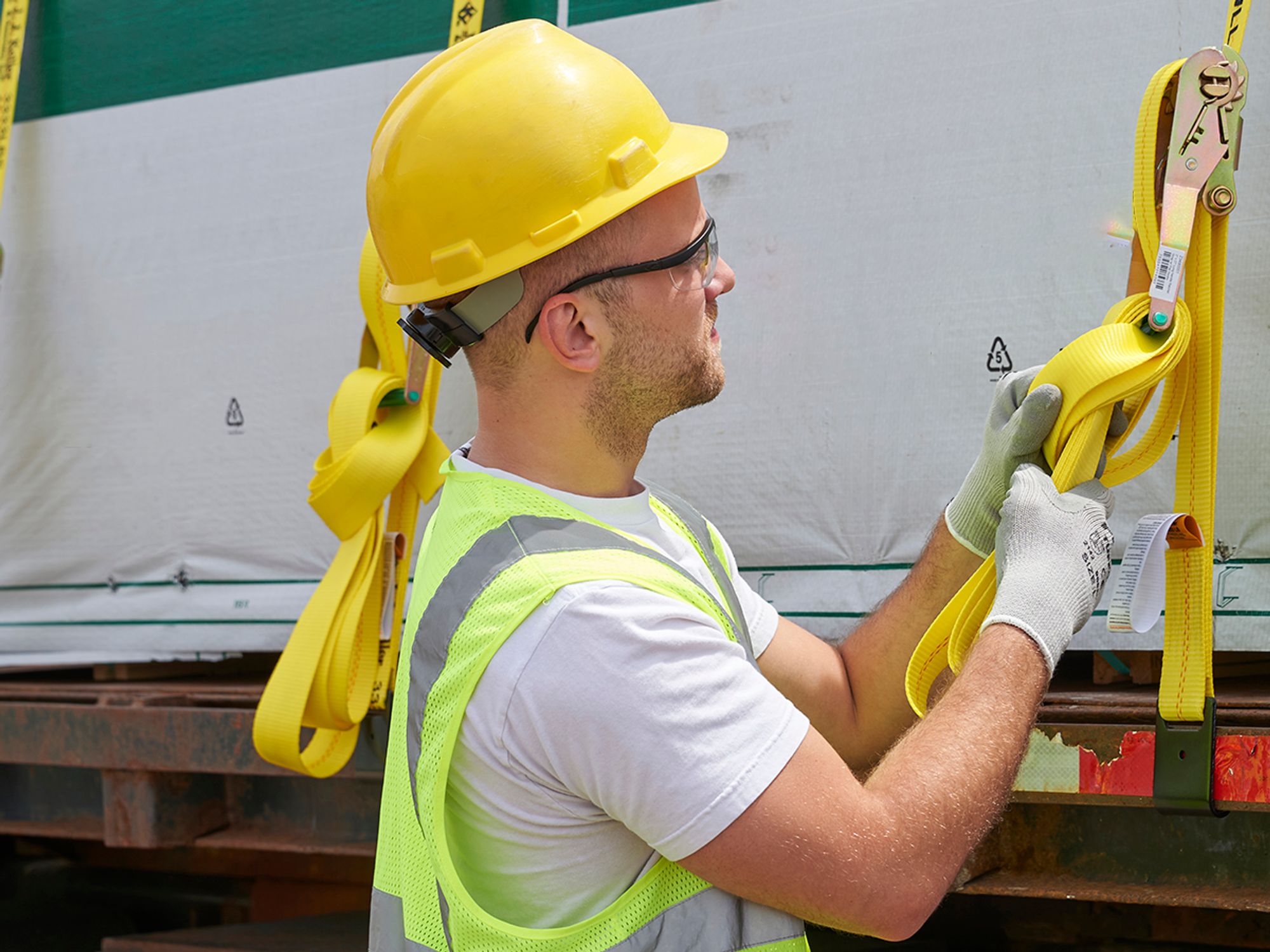Who must comply?

- Cargo loading and securement regulations apply to motor carriers and their drivers who operate CMVs.
- Motor carriers and drivers that are only involved in intrastate commerce are subject to that state’s cargo loading and securement laws and regulations.
Cargo loading and securement regulations apply to motor carriers and their drivers who operate commercial motor vehicles (CMVs). In general, the rules do not distinguish between types of CMVs, so all kinds of CMVs are subject to the requirements, including all trucks, flatbeds, and box/van trailers.
A commercial motor vehicle is any self-propelled or towed vehicle used on a highway to transport property or passengers in interstate commerce when the vehicle:
- Has a gross vehicle weight rating (GVWR) or gross combination weight rating (GCWR), or gross vehicle weight (GVW) or gross combination weight (GCW), of 10,001 pounds or more, whichever is greater; or
- Is designed or used to transport nine or more passengers (including the driver) for compensation or 16 or more passengers (including the driver) not for compensation; or
- Is transporting hazardous materials of a type or quantity that requires placarding.
A highway is any road, street, or way (whether on public or private property) that is “open to public travel,” meaning that the road or way is available (except during scheduled periods, extreme weather, or emergency conditions) and passable by four-wheel standard passenger cars and is open to the general public for use without restrictive gates, prohibitive signs, or regulations other than restrictions based on size, weight, or class of registration.
Intrastate operations
A key part of the CMV definition is interstate commerce, meaning commerce that crosses state or national borders. Motor carriers and drivers that are only involved in intrastate (in-state) commerce are subject to that state’s cargo loading and securement laws and regulations. Under those laws or regulations, the CMV definition may differ from the one described above. In general, however, cargo securement regulations are uniform across North America, with some regional differences.
